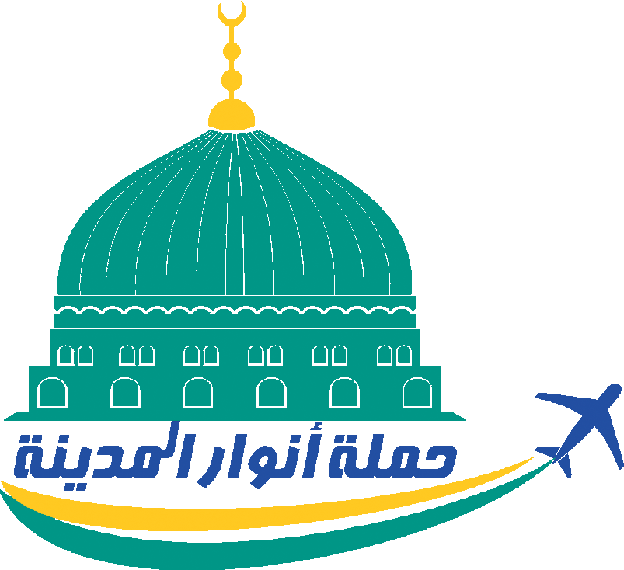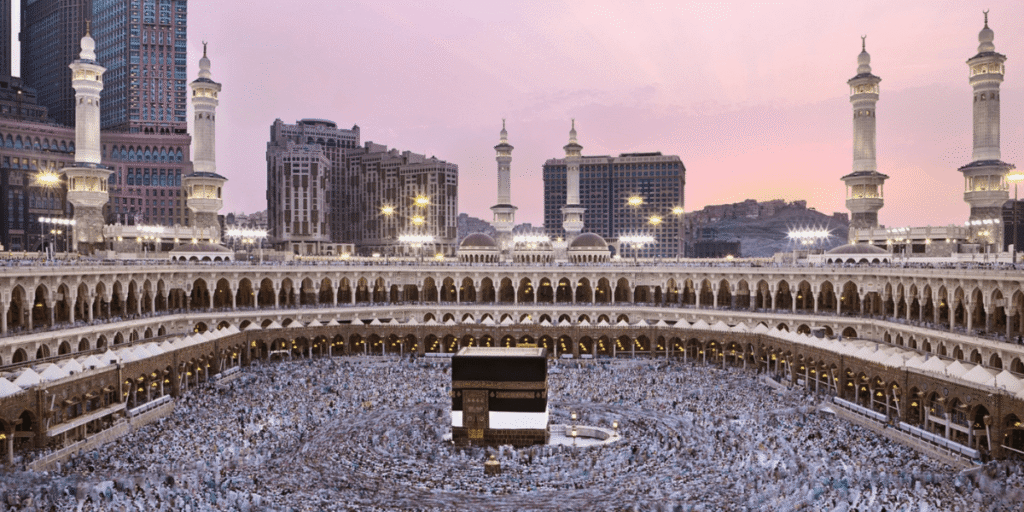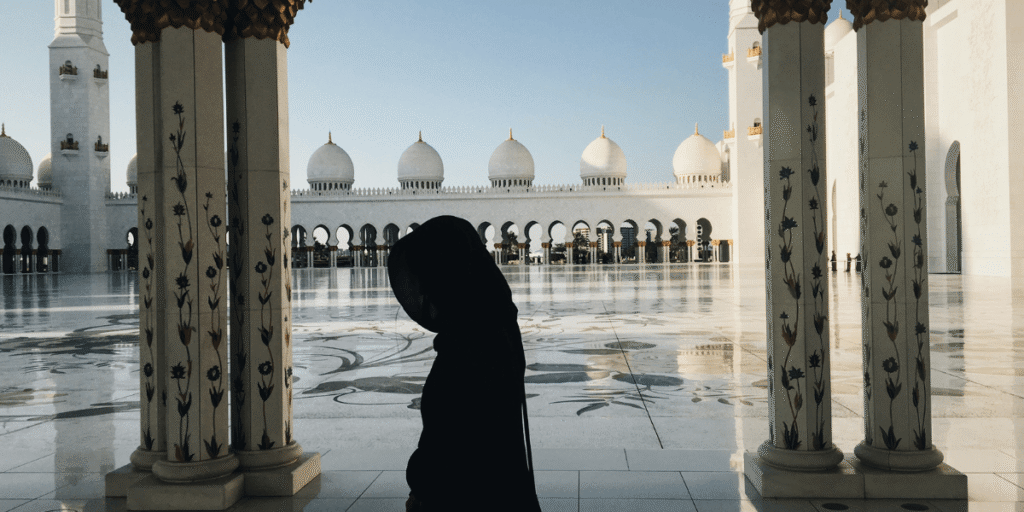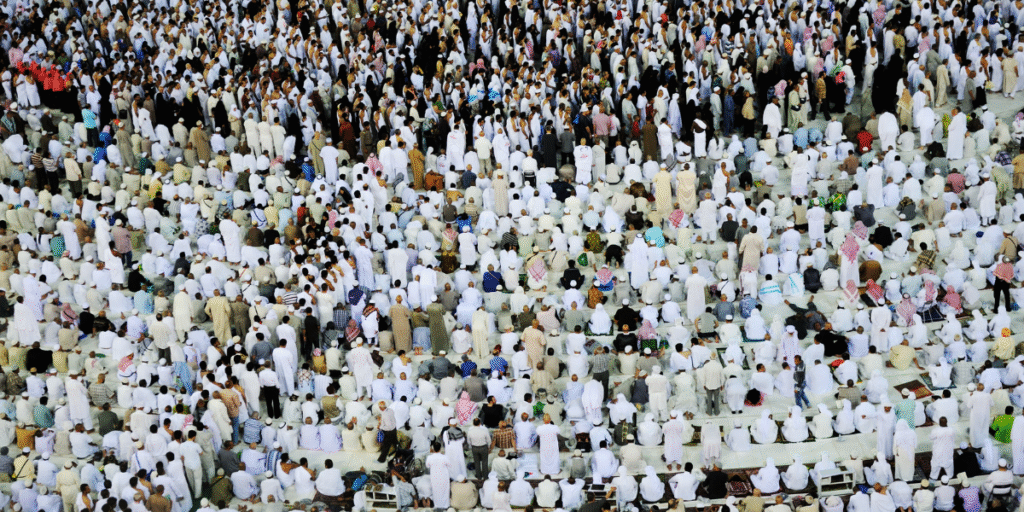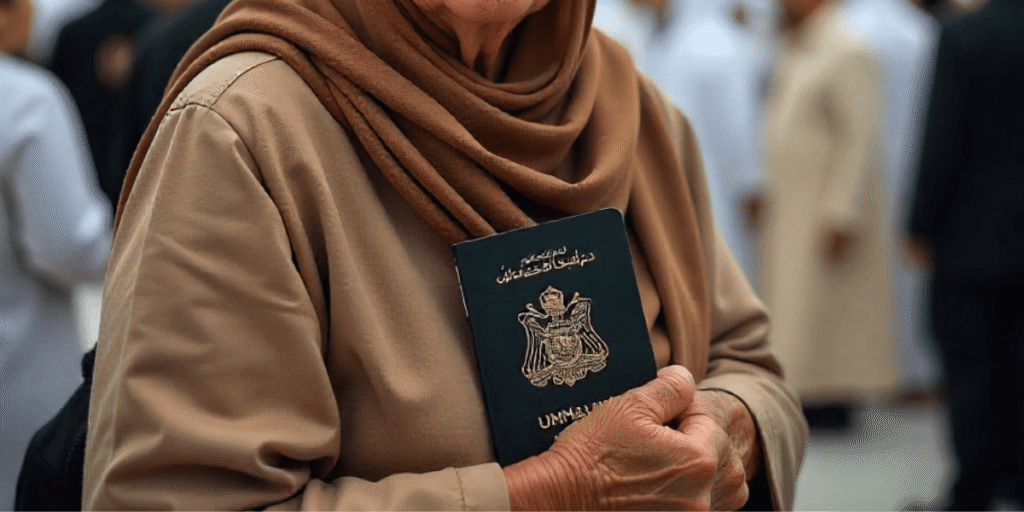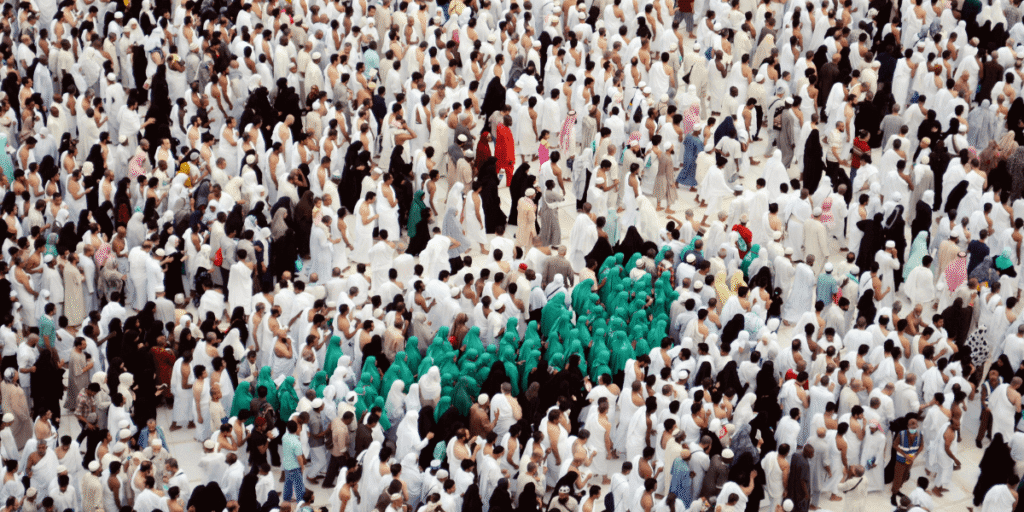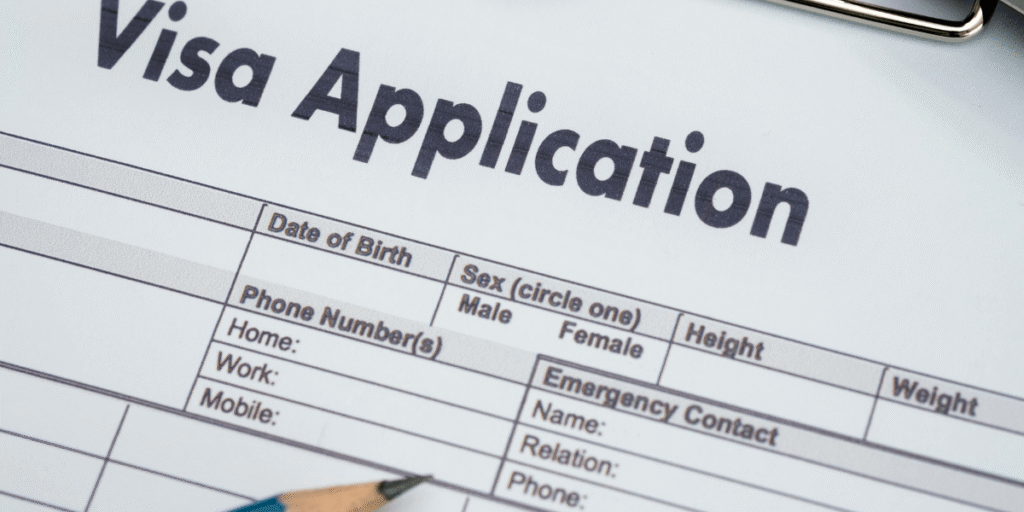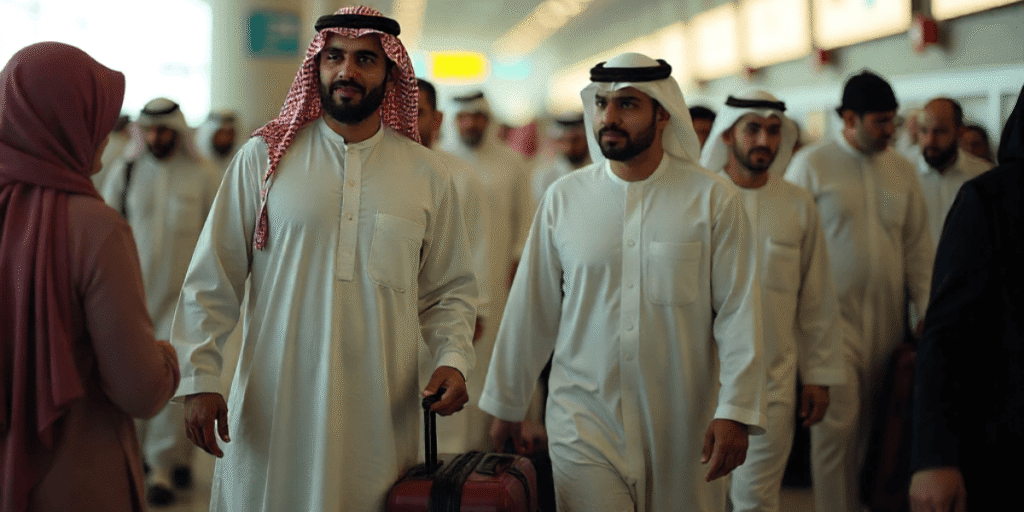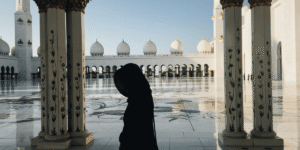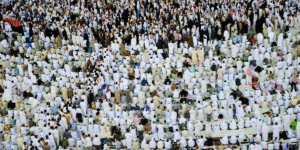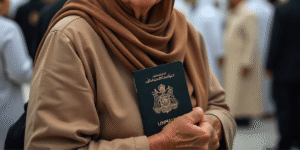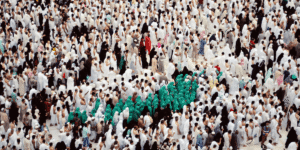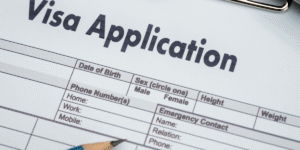The Hajj is one of the most significant journeys a Muslim can make. Each year, millions of pilgrims travel to Makkah to fulfil this sacred obligation, often undertaking long journeys and enduring physically demanding conditions. The experience is spiritually transformative, yet it requires careful planning to ensure health, safety, and overall well-being throughout the pilgrimage.
Preparing well in advance, adopting healthy practices, and staying mindful of safety during rituals can make the difference between a stressful experience and a fulfilling one. This wellness guide provides Hajj tips on physical preparation, nutrition, hydration, hygiene, mental calm, and overall health, all aimed at helping pilgrims perform Hajj with focus and strength.
1. Physical Preparation for Hajj
The rituals of Hajj involve long walks, standing in prayer, and enduring hot weather. For this reason, preparing your body before departure is essential. Good physical fitness not only makes the experience easier but also helps prevent fatigue and injuries.
Build Stamina Early
Start training for Hajj at least six to eight weeks before your trip. Walking is the most important preparation. Begin with brisk 20–30 minute walks and extend your distance gradually. Practice walking in the heat and on inclines to mimic conditions in Makkah.
Strengthen Core and Lower Body
Pilgrims often walk ten to fifteen kilometers in a single day. Exercises like squats, lunges, and planks strengthen muscles in the legs, hips, and core. A stronger body copes better with long hours of standing and walking.
Practice Ihram Readiness
For men, wearing the Ihram and walking in sandals or slippers may feel unusual at first. Break in your footwear before traveling to avoid blisters. Women should also ensure their shoes are comfortable for extended walking.
Medical Check-Up
Schedule a full medical evaluation, especially if you have conditions like diabetes, asthma, or high blood pressure. Discuss the physical demands of Hajj with your physician and get medical clearance to travel. Carry updated prescriptions and understand how to manage your condition while abroad.
2. Staying Hydrated in Hajj
The climate in Saudi Arabia can get extremely hot, and dehydration is one of the most common risks faced by pilgrims. Stay hydrated to conserve energy, improve focus, and avoid heat-related illnesses.
Drink Frequently, Not Just When Thirsty
Keep a refillable water bottle with you at all times. Drink small amounts often instead of waiting until you feel thirsty. Zamzam water is widely available and safe to drink.
Recognize Signs of Dehydration
Watch for dizziness, headaches, dark-colored urine, fatigue, or a dry mouth. If these appear, increase your fluid intake immediately and rest in the shade.
Limit Caffeine
Avoid excessive intake of tea, coffee, and other caffeinated drinks, as they increase fluid loss and can worsen dehydration.
Dress for the Climate
Light-colored, breathable cotton clothing helps regulate body temperature. Men’s Ihram meets this requirement, while women should also choose light innerwear. An umbrella and sun protection are essential for blocking direct heat.
3. Safety Tips for Hajj Pilgrims
With millions of people gathering in one place, safety must remain a top priority. By staying alert and following simple practices, you can protect yourself and others.
Be Crowd Conscious
Rituals such as Tawaf and Jamarat are busiest during peak hours. If possible, perform them during less crowded times. Always move with the flow of the crowd, avoid pushing, and remain patient.
Protect Your Feet
Always wear sandals, even in restrooms and tents. Walking barefoot can drastically increase the risk of cuts, infections, and stepping on sharp objects.
Secure Your Belongings
Clearly label shoes, bags, and essential items. Keep a card with your camp’s address, your group leader’s phone number, and a copy of your passport with you at all times.
Health Protection
Wearing a face mask in crowded spaces can reduce exposure to respiratory illnesses. Use hand sanitizers frequently to protect against germs.
4. Nutritional Awareness During Hajj
Eating balanced meals helps maintain energy and reduces the risk of fatigue. Since the pilgrimage is physically demanding, a thoughtful approach to nutrition is vital.
Choose Balanced Meals
Opt for foods rich in lean protein, such as chicken, lentils, or fish. Include complex carbohydrates along with healthy fats.
Avoid Heavy, Oily Foods
Meals that are too rich or spicy can upset the stomach and slow you down. Lighter, balanced meals are better for sustaining energy.
Eat Small, Frequent Portions
Instead of large, heavy meals, eat smaller portions throughout the day. This keeps energy levels steady without making you sluggish.
Pack Healthy Snacks
Carry simple, non-perishable foods like dates, nuts, digestive biscuits, or granola bars. These are especially useful when meals are delayed due to rituals or travel.
5. Rest and Sleep
Pilgrims often become so focused on worship that they neglect sleep, but rest is essential for health and stamina.
Prioritize Quality Rest
Aim for consistent sleep whenever possible. Even short naps of 20–30 minutes can restore energy after long rituals.
Use Sleep Aids
Eye masks, earplugs, and neck pillows can make resting easier in noisy or crowded camp settings.
Avoid Sleeping Outdoors
Although it may be tempting to sleep in open spaces, doing so increases risks of dehydration, insect bites, and security concerns.
6. Medication and Medical Supplies
Carrying a personal medical kit ensures you are prepared for minor health issues and emergencies.
Pack Essential Medicines
Include prescription medications, pain relievers, antacids, and oral rehydration salts. Bring antiseptic cream, bandages, insect repellent, sunscreen, lip balm, and wet wipes.
Vaccinations
Make sure you are up to date on required vaccines, such as meningitis, influenza, and COVID-19 (if required). These protect against common infections spread in large gatherings.
Chronic Illness Management
If you have conditions like diabetes, asthma, or hypertension, carry extra medication and wear a medical ID tag.
7. Hygiene Practices
Good hygiene reduces the risk of illness and helps you feel comfortable during the pilgrimage.
Handwashing
Wash your hands often, especially before meals, after using the restroom, and after visiting crowded areas. Carry hand sanitizer for times when soap and water are not available.
Clothing and Cleanliness
Bring multiple sets of lightweight, breathable clothes and change regularly. Avoid wearing unwashed garments for long periods.
Keep Sleeping Spaces Clean
Use disinfectant wipes on mats, bedding, or other shared spaces. This lessens the spread of germs and promotes comfort.
8. Mental Calm and Spiritual Focus
The emotional and spiritual intensity of Hajj can be overwhelming. Managing stress is as important as managing physical health.
Accept Delays and Inconveniences
Long queues and unexpected changes are part of the experience. Staying patient and thankful helps maintain peace of mind.
Practice Dhikr and Dua
Regular remembrance of Allah through dhikr and prayer provides calm and strengthens spiritual focus.
Avoid Conflicts
With millions of people from different cultures, misunderstandings are possible. Focus on your own spiritual journey and avoid unnecessary disputes.
Reflect and Journal
Writing about your Hajj experiences can help process emotions and strengthen your connection to the pilgrimage.
9. Traveling in Groups
Group travel enhances safety, provides support, and makes navigation easier.
Stay Connected
Assign group identifiers like matching scarves, hats, or ID cards to spot each other in crowds.
Set Meeting Points
Agree on designated meeting spots in case someone gets separated. Make sure everyone in the group knows these locations.
Follow Your Guide
Rely on your group leader for scheduling, guidance, and advice. They can help you avoid peak times and manage the rituals more smoothly.
Final Reminders
Hajj is a journey that tests endurance, patience, and devotion. By preparing physically, adopting smart health practices, and following safety tips, pilgrims can focus on the true purpose of their journey, spiritual fulfilment and closeness to Allah.
Three N Travel & Tourism LLC provides trusted support for pilgrims planning Hajj from Dubai. As a reliable travel agency in Dubai, the company ensures that pilgrims receive guidance, accommodation, and assistance designed to prioritise well-being.
This sacred journey is not only about reaching Makkah but about preparing your mind, body, and heart for the rituals. By focusing on wellness, maintaining safety, and embracing patience, you set the foundation for a meaningful pilgrimage that will remain with you for life.

